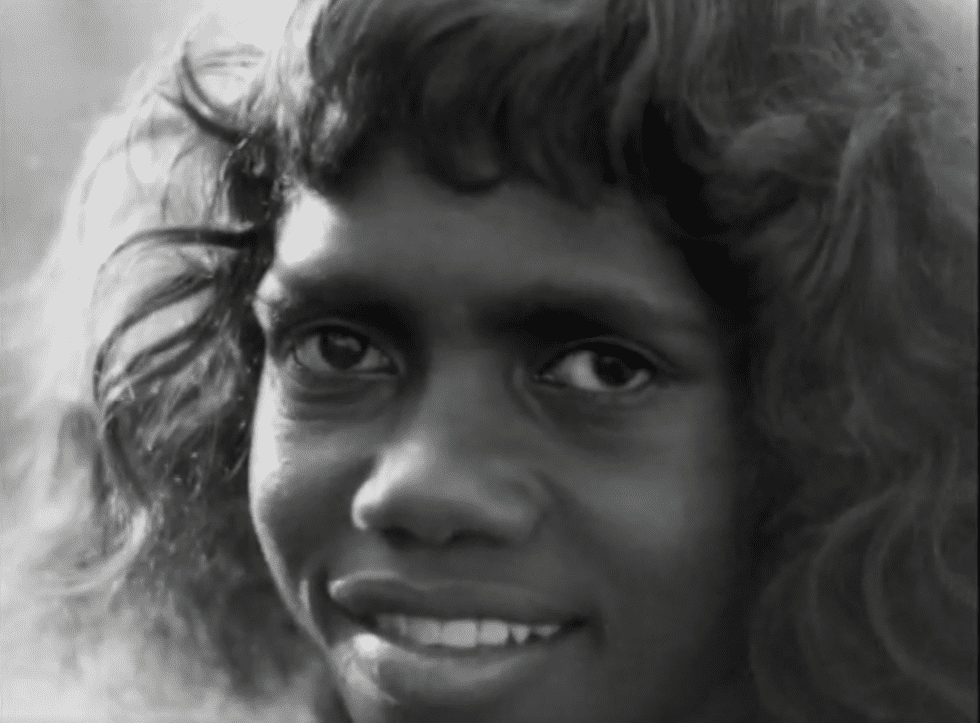

An investigation of the massive racial inequalities in Australian society.
John Pilger returned to his homeland with director Alan Lowery, a fellow Australian, to make a special, three-part documentary, The Last Dream, screened at the time of the country’s bicentenary in 1988. Reflecting on 200 years of White Australia, it is naturally critical and a call for a one-nation future – and an antidote to the celebrations that followed – but Pilger retains an affection for his homeland and a hope for its future as one nation, of whites and blacks.
In Secrets, the second of the trilogy, he focuses on the treatment of the Aborigines – a cloud hanging over the country, casting a shadow over the celebrations. ‘This film is about another Australia, an Australia behind the beer-can images and well-worn stereotypes, a place of secrets,’ he begins. ‘The story of my country has been, and remains, an epic cover-up.’
Highlighting Aboriginal deaths in police custody, he notes that Australia has the highest rate of imprisonment for black people in the world and likens film of the funeral of a black who died from head injuries while being held by police to scenes in the black South African township of Soweto. There have been almost 100 Aboriginal deaths in police custody in recent years, reports Pilger, at a rate of one every two weeks – proportionately more than in South Africa under apartheid. Arthur and Leila Murray tell him about their son, Eddie, dying in custody. Police claimed he hanged himself but admitted he was so drunk ‘he couldn’t scratch himself’.
Australian historian Henry Reynolds says that by the middle of the 20th century Aborigines had been ‘effectively dispersed from the pages of our history books as they had been dispersed the century before from the inland plains of Australia’.
Pilger recalls the ‘killing fields’ where it was estimated that more than 500,000 Aborigines died as a direct result of the British invasion. He also investigates their poverty, the preventable diseases that are still killing them, the ‘stolen generation’ of mixed-raced children taken away from their parents and the betrayal of promises to give them land rights.
Similarly, much of white history has been disregarded, says Pilger, citing the struggles that led to a legal minimum wage predating that of most advanced countries, as well as child benefit, pensions, paternity allowance and the vote for women – all pioneered in Australia and New Zealand.
In Secrets, Pilger also highlights the wealth of media moguls Rupert Murdoch, Alan Bond and Kerry Packer, the demise of Australia’s diverse press and the rise of political corruption.


